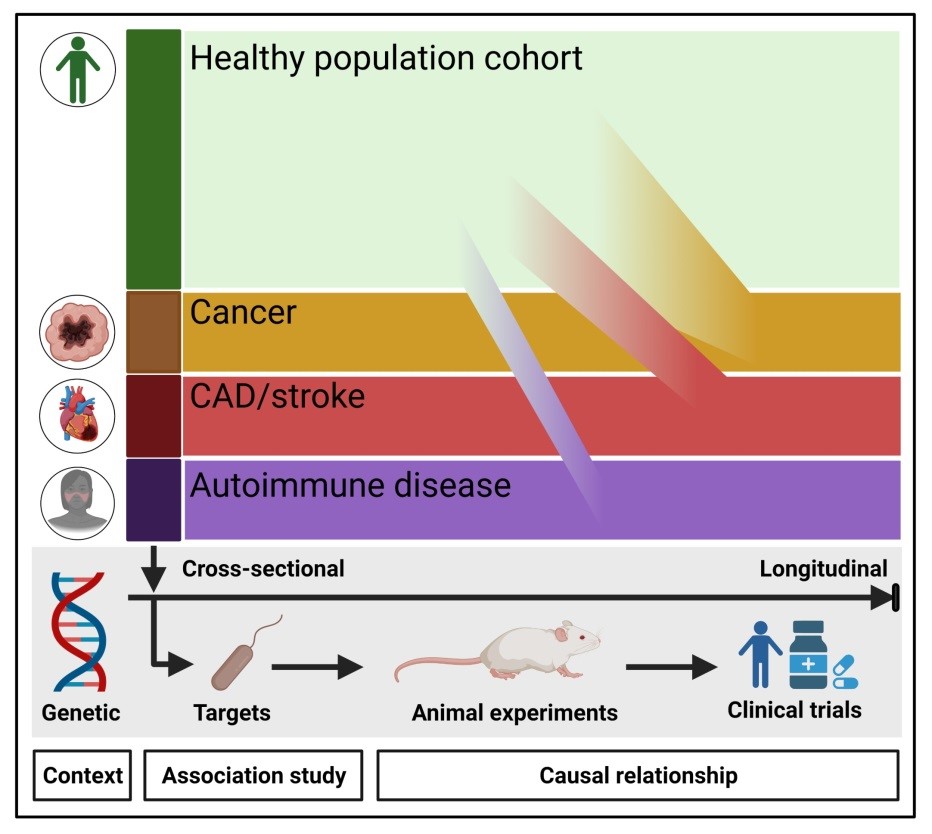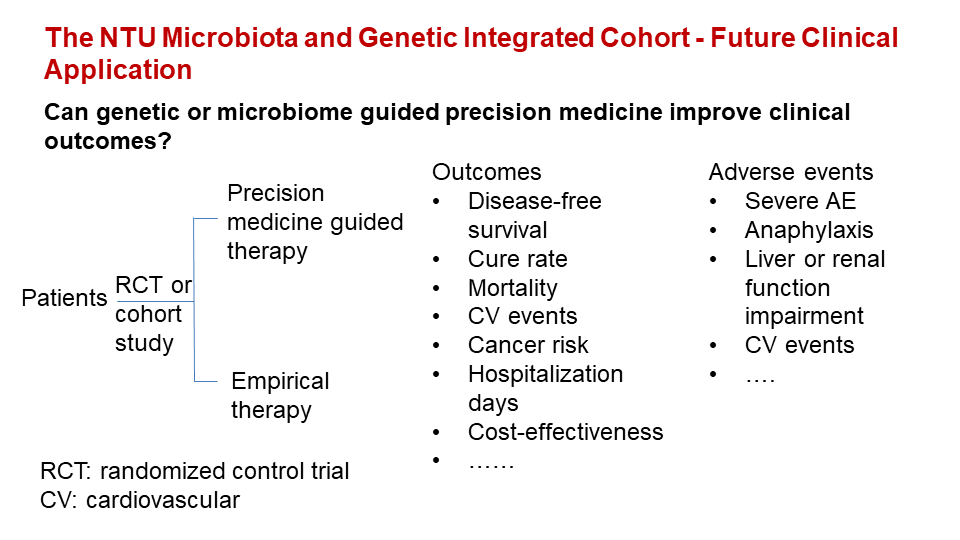Jyh-Ming Liou, Internal Medicine, College of Medicine, National Taiwan University
The NTU Microbiota And Genetic Integrated Cohort Study (the NTU MAGIC Study) was founded to investigate the correlation between gut microbiota and various diseases. This study examines the interplay between human whole-genome genotyping and gut microbiota and the effects they have on disease occurrence. From 2020 to 2023, we recruited 46,000 healthy participants and those with various chronic conditions and collected 26,000 fecal samples. In the realm of genomic studies, we crafted multi-gene risk prediction models for various conditions such as cancer, cardiovascular diseases, autoimmune diseases, inflammatory bowel disease, and obesity. We have already completed shotgun metagenomics sequencing for 2,000 fecal samples, the preliminary results of which have identified some gut microbiota that is associated with autoimmune diseases, gastrointestinal cancers, and cardiovascular diseases. Our future trajectory involves the ongoing development of integrated analysis algorithms that marry genomics and gut microbiota. This initiative aims to dissect the causal relationships between gut microbiota and disease occurrence, as well as the interactions of host genes with disease development, progression, and treatment response.
 Figure 1: The NTU MAGIC Study
Figure 1: The NTU MAGIC Study
In the short term, case-control studies will be conducted, which will pave the way for long-term cohort studies to pinpoint gut microbiota linked to a variety of diseases. Future endeavors include animal experiments and clinical trials to validate the causal relationships between gut microbiota and chronic diseases.
 Figure 2: Future Clinical Translational Research and Clinical Applications
Figure 2: Future Clinical Translational Research and Clinical Applications
As we look ahead, randomized clinical trials will be conducted to provide empirical evidence to affirm the accuracy and effectiveness of genotypes and gut microbiota types in diagnosis, risk prediction, and guided treatment.
